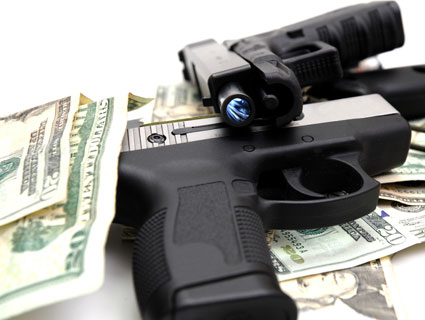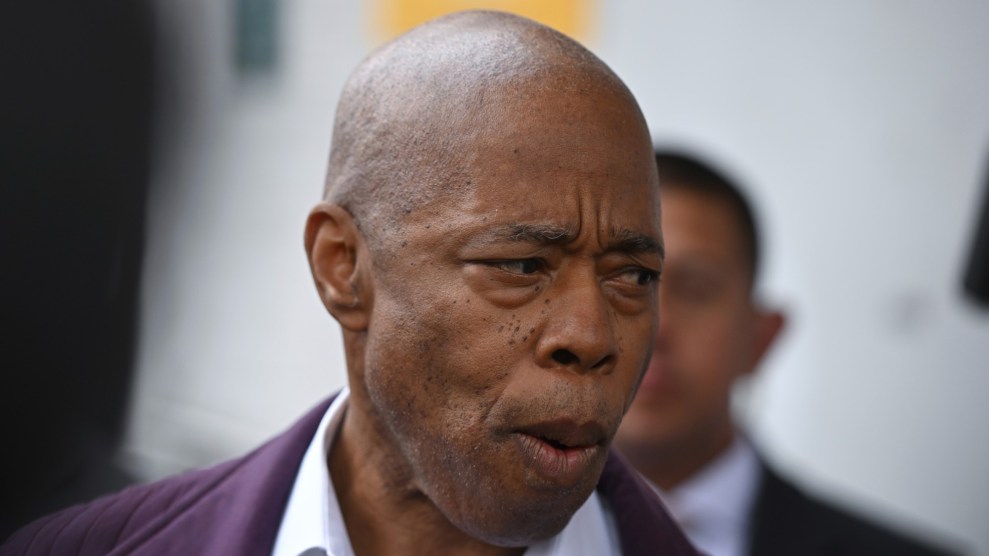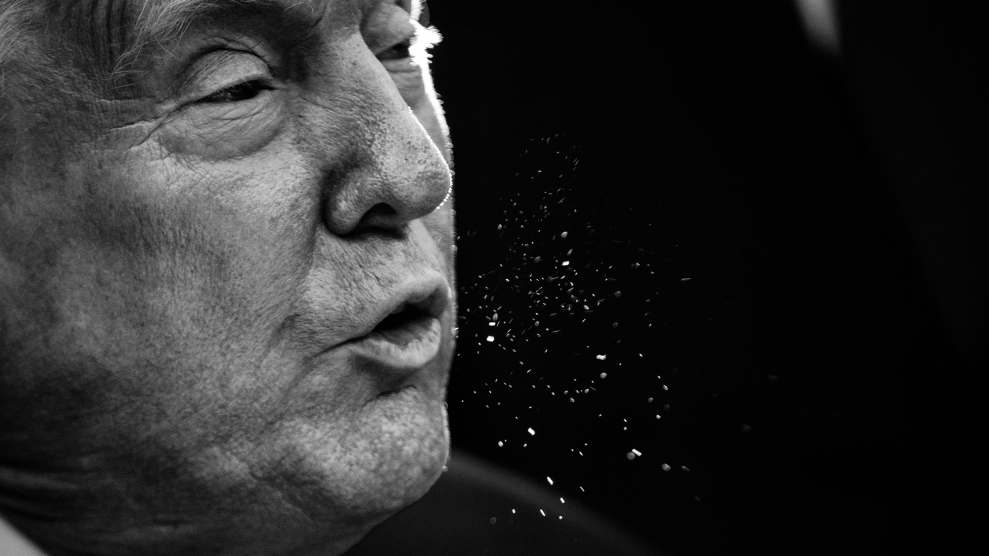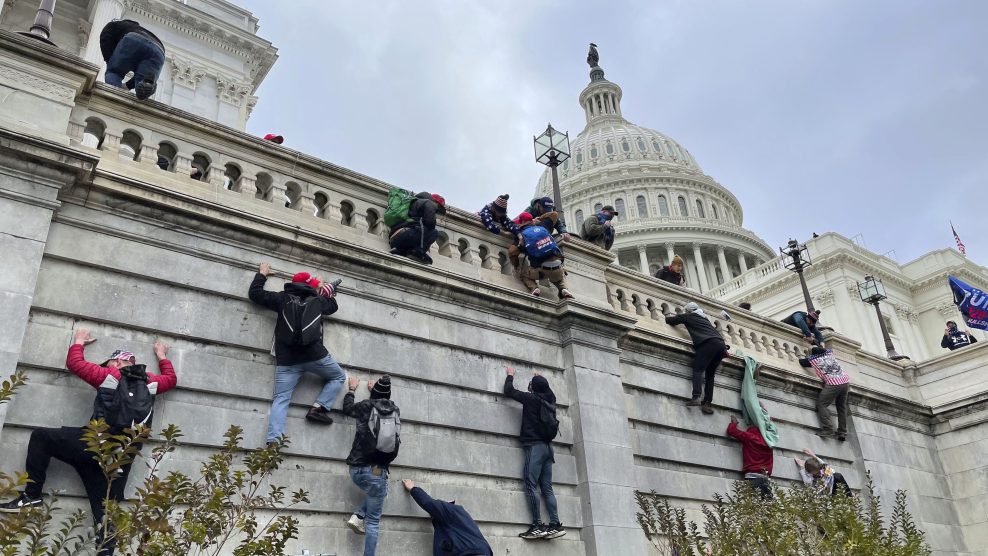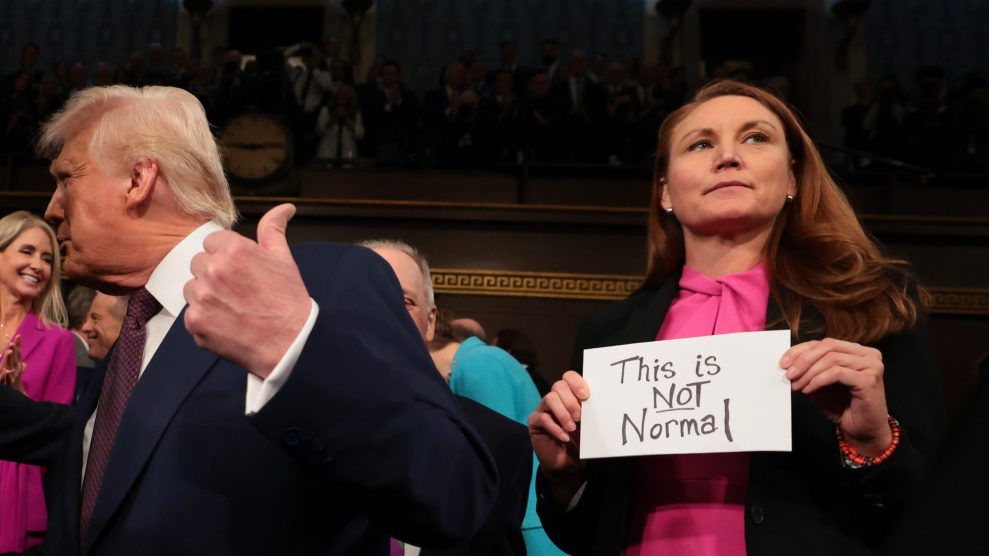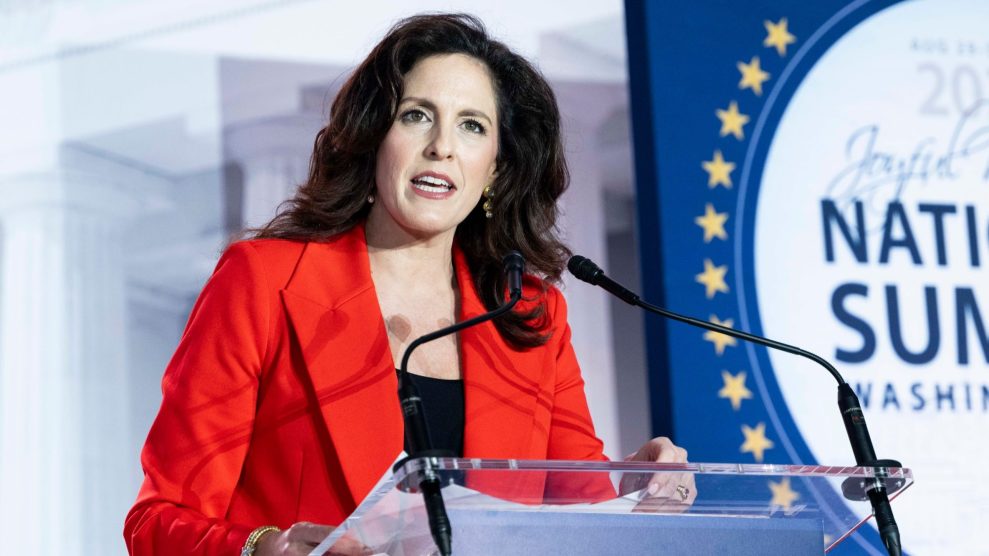“Shame on you!” Patricia Maisch, a survivor of the 2011 mass shooting in Tucson, yelled from the Senate gallery on Wednesday afternoon after the amendment to expand gun background checks fell six votes short of the 60 it required to overcome a filibuster. Maisch, regarded as a hero for having grabbed gunman Jared Loughner’s third magazine after other bystanders tackled him, was escorted out of the Senate chamber and swarmed by reporters as police attempted to kick her out of the Capitol.
Maisch watched the vote with other survivors and the families of victims of recent mass shootings, who left the chamber raw with emotion. As they waited for Senate Democrats to emerge to speak with reporters, the families of Newtown victims were consoled by Sen. Richard Blumenthal (D-Conn.). Sen. Chuck Schumer (D-N.Y.), who had introduced a universal background check bill but supported the bill authored by Sens. Joe Manchin (D-W.Va.) and Pat Toomey (R-Pa.) after his was rejected by Republicans, told reporters, “Today, fear, mistruth, brute political force won out over what is right. America will be a less safer place because of it.”
President Barack Obama, who has made a push for expanded background checks a central focus of his second term, railed against the National Rifle Association at a separate Rose Garden press conference. “Instead of supporting this compromise, the gun lobby and its allies willfully lied about the bill,” he said. “They claimed that it would create some sort of ‘Big Brother’ gun registry, even though the bill did the opposite.”
In fact, the bipartisan bill contained a number of concessions to the gun lobby, which was involved in the compromise talks. But Manchin stood behind his legislation, which would have expanded background checks to gun shows and online sales. “I would hope that common sense would prevail,” he said, vowing to continue working with Toomey. Because Senate Majority Leader Harry Reid initially cast a procedural vote against the bill, he can reintroduce it later.
But Toomey and just three other Republicans—Sens. Susan Collins (Maine), Mark Kirk (Ill.), and John McCain (Ariz.)—supported the bill. An equal number of Democrats—Sens. Max Baucus (Mont.), Mark Begich (Alaska), Heidi Heitkamp (N.D.), and Mark Pryor (Ark.)—voted against it. (Asked by reporters to explain his vote, Baucus simply replied, “Montana.”)
Still, families of the victims of gun violence and gun reform groups had plenty of reason to hope for the bill’s passage. Andrew Goddard, whose son Colin survived the 2007 Virginia Tech massacre, said he had learned from past mistakes that “a step forward is a step forward even if it’s only a small step forward.” After his son was shot, he explained, “We were going for a gun show loophole bill in Virginia and [opponents] offered us a watered-down version, which would have been a voluntary [background check] system. Being new to the game, we figured no, we’d hang on for the full mandatory system. And of course we ended up with nothing.”
However, Goddard added, after Newtown he has seen a coalescence of gun reform groups that had been more parochial in the past. That was reflected by the strongly worded statements the groups released after the vote. Mayors Against Illegal Guns called it a “damning indictment of the stranglehold that special interests have on Washington.” The Coalition to Stop Gun Violence said it was a “stain on the reputation of the US Senate, and insulting to victims and survivors of gun violence nationwide.” Americans for Responsible Solutions said the Senate “ignored the will of the American people,” who overwhelmingly support expanded background checks.
Erica Lafferty, whose mother, Sandy Hook Elementary principal Dawn Hochsprung, died in Newtown, called the vote “disappointing.” But she said she was grateful there had been one. “The next time a mass shooting happens and [senators who voted against the bill] are asked what they did to make sure this didn’t happen again, they’re going to have to respond, ‘Nothing.'”
Sarah Brady was also present for the Senate vote. Her husband, former White House press secretary James Brady, was left permanently disabled during the 1981 assassination attempt on President Ronald Reagan. Twelve years later, when Congress passed the first federal background check law, it was named in his honor. “Of course I’m disappointed that even a watered-down bill like this couldn’t get through,” Brady said. But after the shootings in Aurora and Newtown, she added, “I think the fervor is there now” to pass stronger gun laws. Gun reformers “just have to get some political work done, be as intense in our views as the opposite side is with theirs.”


